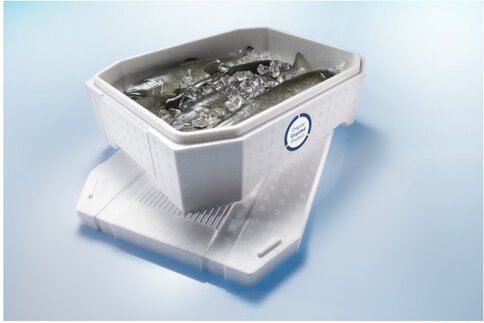Chemical recycling: key technology for the circular economy
Chemical recycling is considered a promising addition to mechanical plastic recycling. It allows waste that was previously difficult to recycle to be processed into high-quality raw materials. Read a current overview here of the potential, obstacles, and technical solutions.
What is chemical recycling?
The term “chemical recycling” encompasses various processes for recycling plastic waste in which the chemical structure of the material is altered. The polymer chains are broken down using various methods into monomers (by depolymerization) or basic chemical components (by pyrolysis or gasification). The secondary raw materials produced in this way can be used by the chemical industry for various purposes—for example, to produce new plastics that are of the same quality as virgin materials.
Current market size and development potential
According to the National Circular Economy Strategy (NCES), of the 5.7 million tons of plastic waste generated in Germany each year, around 64 percent is currently converted into energy and 35 percent is recycled, predominantly using material-based processes. The share of chemical recycling is still low at around 10,000 tons, as market research company Conversio has found.
This is likely to change soon: According to the European plastics manufacturers’ association PlasticsEurope, its member companies want to invest around EUR 8 billion in chemical recycling by 2030. The facilities that will then be available are expected to enable around 3.4 million tons of chemically recycled plastic to be produced annually—compared to around 0.1 million tons in 2023.
(...) Chemical recycling should only be used as a supplementary measure if there is no possibility of material recycling or if, for example, high standards are required for the end product. (...)
Political tailwind
The German government also sees chemical recycling as an important component of the circular economy. According to the coalition agreement (CDU/CSU + SPD, spring 2025), it will be incorporated into the existing waste hierarchy.
The National Circular Economy Strategy emphasizes that, due to their energy requirements, preferences should be given to chemical processes when material recycling is not possible or when particularly high demands are placed on the end product, as in the case of food packaging or hygiene articles, for example.
Innovative strength from industry: two examples
At IFAT Munich 2024, the VDMA Spotlight Area, among others, offered a comprehensive insight into the state of chemical recycling. Here are two technologies and players by way of examples:

1. BASF’s ChemCycling project
In the ChemCycling project, which has been running at BASF since 2018, waste disposal companies supply the chemical company’s technology partners with the input material. Mixed plastic waste is converted into pyrolysis oil by Viridor (formerly Quantafuel) and Arcus using a thermochemical process, while Pyrum and New Energy specialize in the pyrolysis of used tires. The pyrolysis oil is purified and used as a raw material at the start of BASF’s integrated production process. Certified products are manufactured under the name Ccycled and have already been introduced by BASF customers in various industries, such as (food) packaging, medicine, textiles, and automotive.
Washed feedstock reduces subsequent process costs.

2. Upstream washing and cleaning solutions from Lindner Washtech
When plastic fractions are fed into a chemical recycling process, they must first be pretreated or processed accordingly. While dry cleaning is often used in pre-treatment, it is now known that even in chemical recycling, a low degree of purity inevitably affects the quality of the end product—in the case of pyrolysis, for example, the pyrolysis oil. The compact wet pre-wash from Lindner and Lindner Washtech—a quality supplier of efficient washing technology for more than ten years—has proven itself to be an indispensable stabilizer for the entire process.
“Basically, the need for wet washing depends on the degree of contamination. However, practice shows that feedstock that is pretreated with compact washing not only enables a more efficient recycling process, but also guaranteed throughput and consistent quality. Pre-cleaning the plastic fractions eliminates the need for time-consuming processes to remove contaminants in the subsequent process, which significantly reduces process costs,” explains Yannick Stanau, who is responsible for business development at Lindner Washtech.
Outlook: Also an important topic at IFAT Munich 2026
The importance of chemical recycling continues to grow—technologically, politically, and economically. Accordingly, the topic will once again play an important role at IFAT Munich 2026. For example, the VDMA plans to showcase the hydrolysis process in a Spotlight Area.
Stay informed!
Stay up to date with the IFAT Munich industry newsletter—covering trends, innovations, and events in the environmental technology industry.
